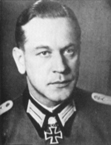Canoerebel
Posts: 21100
Joined: 12/14/2002
From: Northwestern Georgia, USA
Status: offline

|
Funny we should be discussing this topic right now, because I've written a story along these same lines for the next issue of the magazine:
Vanishing Georgia
The Old Timers
On a sunny spring afternoon in 1981, I stood at my second-story dormitory window and looked down at the green expanse of the Myers Hall quadrangle. Scores of college students filled that park-like space. Some mingled in small groups. Others tossed Frisbees, sunbathed, or played softball. It was a scene of youthful vigor. Everyone seemed to be in the prime of life: healthy, happy, and apparently carefree.
As I took in that view, a campus bus pulled to a stop on the opposite side of the quadrangle. A dozen or more students disembarked and quickly melted into the teeming throng of young men and women. Then a frail, primly-dressed lady who seemed to bear the full weight of years upon her shoulders stepped from the bus to the sidewalk. She straightened her sweater, adjusted her hat, and began walking slowly across the quadrangle.
I watched for ten minutes as she made her way through that sea of students. As far as I could tell, none of them took notice of her. Finally she reached the dorm building, opened the door, and entered.
When she disappeared from view, I felt a momentary pang of regret – a brief melancholy feeling of time passing relentlessly, accompanied by a dawning awareness of my own mortality. It was a feeling as though life was slipping through my fingers, slowly at that moment but destined to accelerate as first years and then decades would pass.
The juxtaposition of age and youth was striking; so striking that I briefly considered walking downstairs. I had a fleeting notion that I ought to find the lady, ask her name and where she was bound, and invite her to share her memories. I wondered what she thought about the sprawling University of Georgia campus, the young people who hadn’t noticed her, and the passage of decades that had created such a chasm between her and them.
But the moment passed. I didn’t walk downstairs. I didn’t find her and ask those questions. And I never saw her again.
That moment has remained with me for 35 years. To this day, I wonder what she might have told me about a much younger Athens and her own youthful years. Did she yearn for earlier days, remembering a time when she was lithe and the world seemed young? Did she wistfully recall an evening walk beside a handsome suitor, strolling hand in hand beneath the glow of a gas lamp illuminating a sidewalk and nearby storefronts? Had she once marveled at streets teeming with wagons loaded high with cotton?
Perhaps as a young lady she had attended the Lucy Cobb Institute, a school for girls that stood on Milledge Avenue until 1931. Perhaps she had known pioneer aviator Ben Epps, who operated a “flying field” a few miles outside town. And perhaps she remembered the so-called Road Lab killings that had taken place on the university campus in 1918.
Had I taken the time to ask, she might have told me of these things. How grateful she might have been for the opportunity.
Sometimes, when I think about her, I wonder if she once stood in the place I would stand. During the prime of her life in the 1920s, had she ever watched an old timer make his shuffling way across an expanse of parkland? Did she ponder who he was, who he might have known, and what he might have seen? Did she look in wonder but shrink from asking?
Maybe she knew a wizened gentleman who in his youth had wrestled with the question of secession from the Union. Maybe she had walked beside a frail woman who remembered dancing gaily at a splendid ball in the company of ante bellum grandees like Thomas R.R. Cobb, Howell Cobb, and Joseph Henry Lumpkin. Maybe she had once, so very long before, made acquaintance with an old timer who could tell of traveling to Athens by stagecoach, before the era of the railroad.
Given the magic of generational knowledge, such things are possible. In such manner, while I viewed the Myers Hall quadrangle that afternoon in 1981, just one or two lifetimes may have separated me from memories of momentous people and events of the first half of the 19th century. The lady might have known someone with memories of the discovery of gold in north Georgia, the removal of the Cherokee from their homeland, or the fearsome scourges of yellow fever that swept our southern seaports.
Sometimes we don’t recognize the power of generational knowledge until it’s too late. Then we lament, “I wish I had asked Mom (or Dad) about their childhood, who they knew, and what they saw. Now it’s too late.”
I didn’t know enough local history to ask well-informed questions of that lady in 1981. But that isn’t what stopped me from finding her to ask. What stopped me was the notion that it wasn’t important; that there would be other opportunities; that there would be no shortage of old timers to talk to when the notion struck.
So I missed that chance. Then days turned into weeks, months into years, and old timers who could have answered those questions passed away, one by one, and their firsthand knowledge vanished from living memory.
Gradually I learned to stop and ask. Sometimes, anyway. As I drove down a rural mountain byway one Labor Day in the 1990s, I saw a withered man in faded denim overalls and soiled button-down shirt puttering across his lawn on a rickety riding lawnmower. To his rear stood his worn, unpainted country-style house, its pine-planking weathered as dark as fine walnut.
I’m not sure what prompted me to stop that day. I think I had been working on a story about the Rosedale Cyclone, which killed thirteen people on March 13, 1913. Perhaps he appeared to be the proper vintage to have memories of that calamity.
I recall discussing the cyclone with him, though I don’t remember exactly what he said. But I’ve never forgotten a story he recounted. He told me that many decades before, he’d had a dream in which lightning struck a tree that stood between two other trees in his pasture. When he awakened, he knew what the dream meant: a man would come between him and his wife. Not long afterwards, he said, his wife left him for another.
Less than three months after my talk with that man, he passed away. I’m glad I stopped to chat with him, but I regret the many other times I have been too busy to do so. How many opportunities have I missed to pass the time with those holding keys that would unlock the past?
Last summer, while slowly jogging along a dirt road on the Berry College campus, I approached a group of ten students coming my way. Each of them seemed to be in the prime of life: healthy, happy, and apparently carefree. It was a scene of youthful vigor.
As I passed by, they were deep in conversation. None of them took notice of me. None of them wondered who I was, where I had come from, or who I had known in my own youthful years. I rounded a curve, entered the shade of deep forest, and left them behind.
Then it dawned on me. I was the old timer.
|
 Printable Version
Printable Version






















 New Messages
New Messages No New Messages
No New Messages Hot Topic w/ New Messages
Hot Topic w/ New Messages Hot Topic w/o New Messages
Hot Topic w/o New Messages Locked w/ New Messages
Locked w/ New Messages Locked w/o New Messages
Locked w/o New Messages Post New Thread
Post New Thread